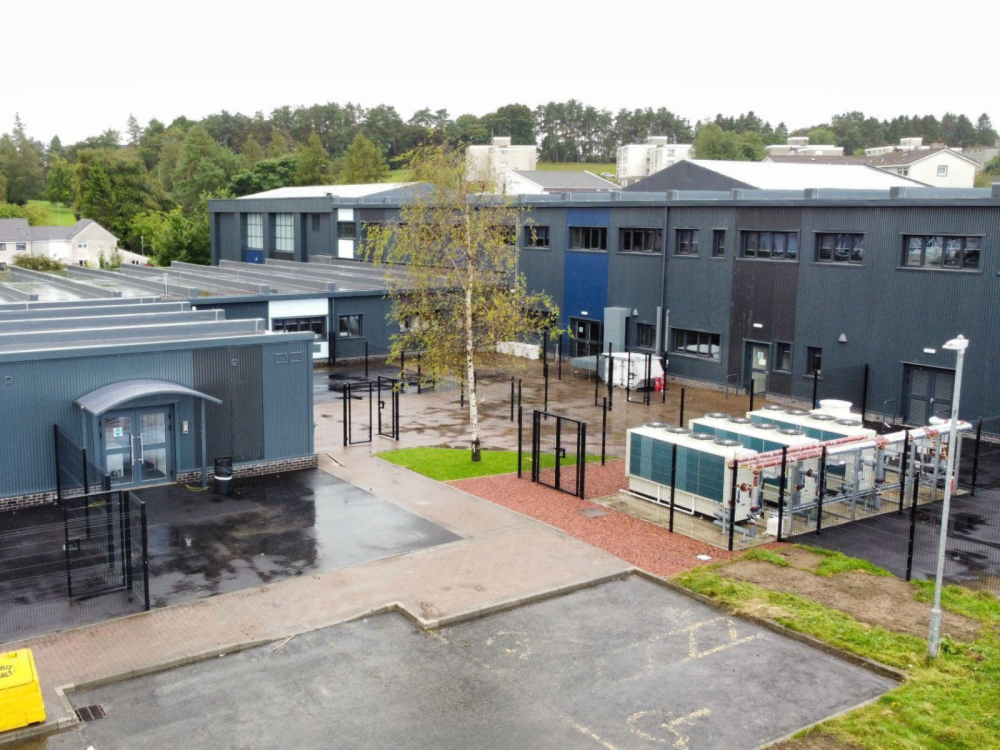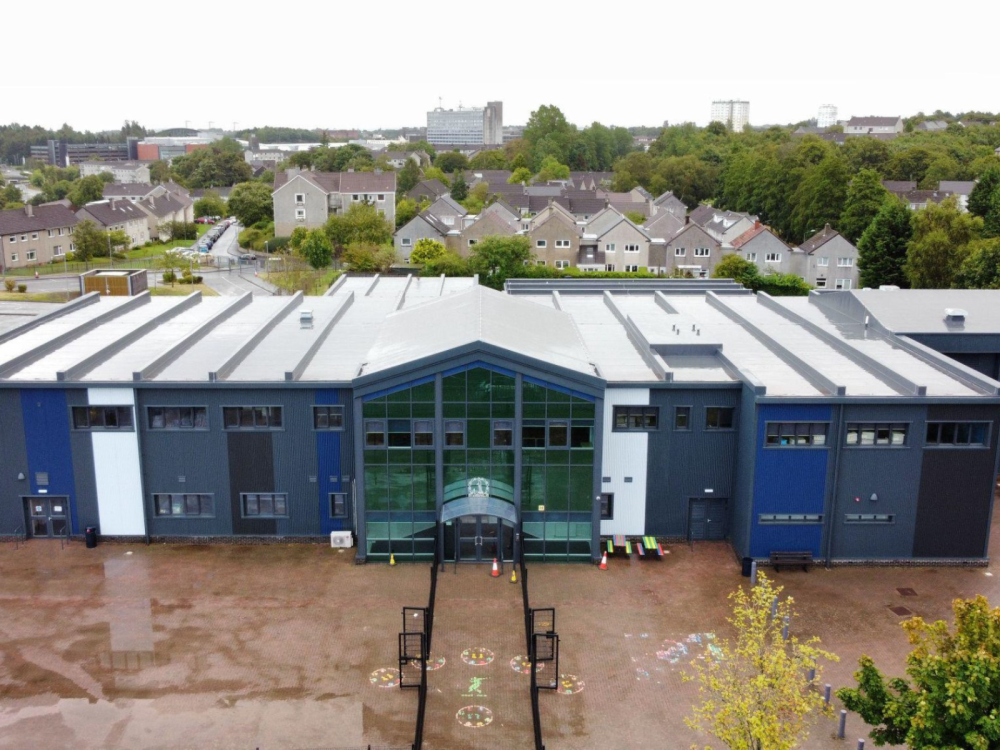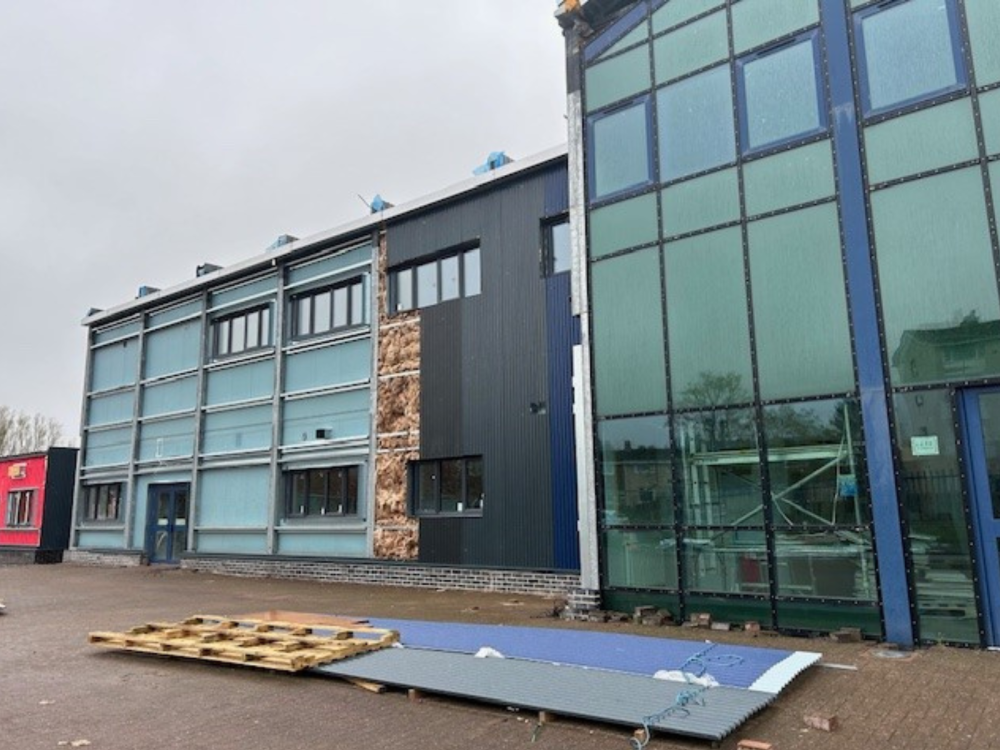Schoolchildren benefit from trailblazing decarbonisation project in South Lanarkshire
The project at Our Lady of Lourdes Primary School received funding through an innovative Scottish Government grant scheme
A cutting-edge scheme in South Lanarkshire has reached an exciting milestone as the first of the projects funded through Scotland’s Public Sector Heat Decarbonisation Fund to complete.
Pupils at Our Lady of Lourdes Primary School are now enjoying warmer classrooms thanks to sustainability upgrades installed through the scheme.
The East Kilbride school, which is run by South Lanarkshire Council, has capacity for up to 495 pupils and 65 nursery places, with 335 pupils currently registered on the school roll.
As a part of an ambitious programme of works driven by a net zero 2045 target, the council has been planning for retrofit works that will help to lower emissions and improve comfort at its sites across the region. This includes upgrades proposed, over time, at its 125 primary schools.
Paul Manning, council chief executive, said: “Over the past couple of years, the council has put together the plans for that refurbishment and the work itself is now nearing completion.
“The school looks light and spacious and you get no sense at all of the original means of construction.
“It now absolutely stands up to comparison with the rest of our primary schools.”
The school looks light and spacious and you get no sense at all of the original means of construction.
It now absolutely stands up to comparison with the rest of our primary schools.
Our Lady of Lourdes was earmarked for heat works mainly because it occupies a building that was constructed at the turn of the millennium using a modular, prefab technique. Despite being a relatively modern building, the modular design can create some issues around longevity as well as having restricted flexibility.
Issues with humidity, dampness and water ingress had been cited at the school and the 23-year-old boiler providing heat and hot water to the site had begun to fail.
To address, this, the council proposed a retrofit programme that would replace the fossil fuel heating system with an air source heat pump and install insulation measures to negate the issues seen with water and damp. Insulation measures included upgrading to triple glazed windows and insulating the roof and walls.
To further reduce energy demands, the project also proposed the installation of lighting controls and a remotely-managed building management system. Combined, these measures allowed additional control to reduce energy associated with unnecessary or additional lighting of rooms and spaces.
To support the £1.625 million decarbonisation project, the council was awarded £1.2 million through Scotland’s Public Sector Heat Decarbonisation Fund. Our teams at Salix deliver funding for this scheme on behalf of the Scottish Government.
Now complete, the council says the issues with dampness and water ingress have been resolved and it is confident to the building will provide warm, comfortable learning spaces for pupils and staff to enjoy.
Stephen Gibson, council executive director of housing and technical resources, said: “The upgrades have helped to ensure that the school provides a good environment for the children to learn.
“Before we started work, you could feel when it was cold, you could feel the dampness, but with new windows, cladding and roof, it’s watertight – there’s no humidity or dampness in the space.”
Before we started work, you could feel when it was cold, you could feel the dampness, but with new windows, cladding and roof, it’s watertight – there’s no humidity or dampness in the space.
Looking ahead to future works, the council’s next challenge is funding for projects that continue momentum towards their sustainability ambitions.
Stephen added: “Our maintenance budgets won’t stretch to what needs to be done to meet our net zero targets. To complete the scale of works required to reach these goals, government funding is essential.”
Our maintenance budgets won’t stretch to what needs to be done to meet our net zero targets. To complete the scale of works required to reach these goals, government funding is essential.
Zoe Hurst, our programme coordinator who has been supporting the council, said: “A massive congratulations to South Lanarkshire Council for not only completing this important work but also for being the first organisation to complete a project funded through this new Scottish Government scheme.
“The works have already transformed the comfort of the school and will continue to provide benefits to staff and pupils both this winter and into the future as well.
“Although there is more work to be done, the council should be incredibly proud of its achievements, particularly with overcoming the challenges it faced with this pilot project.”
Read our case study for more detail about the project, including expected annual carbon and financial savings, as well as the challenges overcome.



About Scotland’s Public Sector Heat Decarbonisation Fund
Launched in July 2023, Scotland’s Public Sector Heat Decarbonisation Fund made grant funding available from Scottish Government for projects to decarbonise heating systems by replacing them with zero direct emissions systems.
It also includes funding for retrofit energy efficiency measures to support the overall decarbonisation of heat in buildings.
The scheme will deliver funding to successful applicants for projects due to complete by the end of financial year 2024/25.




